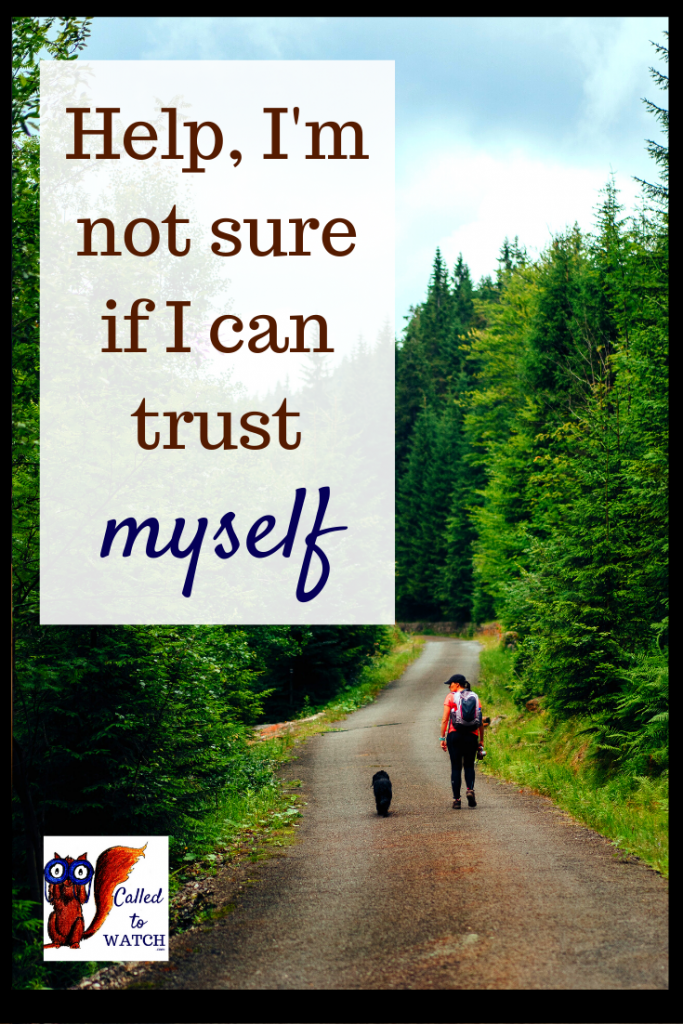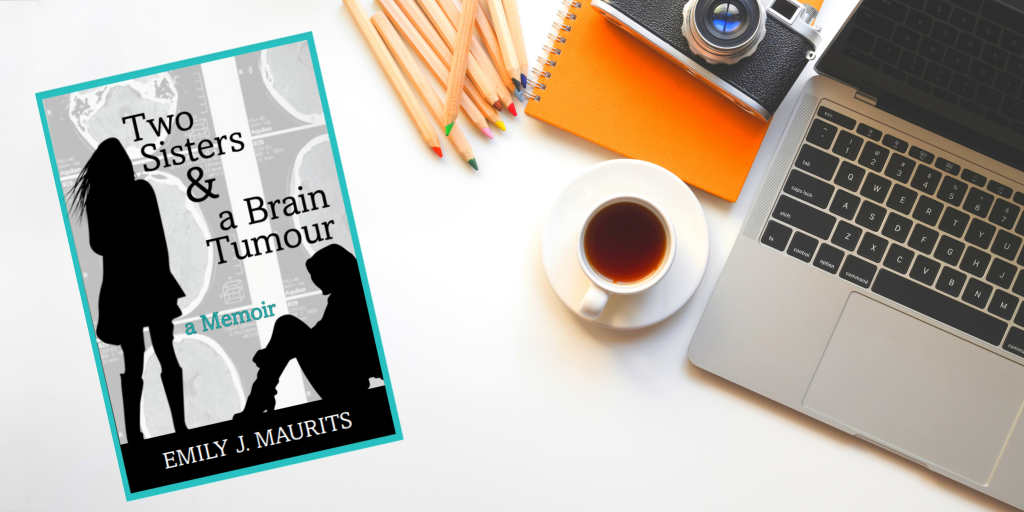Sometimes in chronic illness and caregiving, it can seem like we’re doing it all wrong. We may feel guilty, ashamed, that we’re not good enough, or haven’t done enough. Maybe it’s because we feel as though we’ve run out of sympathy or we’ve moved away and can’t help as we used to. Are these helpful feelings? Are they even reality? And how do we know?
So far this year, we’ve discussed why trust is such a beautiful gift and how to trust in the difficult situation of chronic illness, even when we don’t feel like it. We’ve talked about how to be trustworthy to our chronically ill friends and three reasons we can trust God in chronic illness, even when it seems like he isn’t hearing our prayers. What we haven’t talked about is how to trust ourselves.
Help, I’m not sure if I can trust myself.
Sometimes it can be really difficult to discern whether our feelings are correct. We all feel guilty at times over things we have no need to feel guilty about, often because we have an inaccurate view of our role. We might even feel an acute sense of shame, as though there’s something wrong with us because we haven’t coped with being a Watcher as well as we think we should have, or as well as other people seem to.
If you’re in that situation right now, here are 4 questions to ask yourself.
ONE: What do the other people in the situation say?
Stop listening to yourself for a moment, and listen to the people around you, your family, your friends, your Loved One. What are they saying? Listen to their actions and body language as well as their words.
Do you get the impression that they think you’re not good enough?
TWO: What does an entirely objective person say?
Sometimes those closest to you see you differently to others. They may have unrealistic expectations or be holding on to past grievances. It’s important to find out what someone outside the situation is seeing.
Who can you ask? If you see therapist, counselor or psychologist, ask them. If you have a close friend or mentor who doesn’t know your family, ask them. It could even be someone you don’t know very well, such as a colleague at work. Just say, ‘Do you mind if I run something by you? I’m in a situation and I’d really appreciate an objective perspective.’ You’d be surprised at people’s willingness to listen – most people will feel honoured that you came to them, and flattered to be asked their advice.
Simply outline the situation, and then your feelings about the situation, and end with the question: ‘In your opinion, do these match up?’

THREE: What does God say?
Humans are fallible, and even the most objective colleague is going to bring past experiences and bias into the situation. God however, does not.
Read the Bible: what does it say about being a loving friend? How does the Bible define success or failure? What does the Bible say about sin, shame or guilt?
Think of Jesus’ interactions with the many individuals in the New Testament. Who do you identify with most right now? What did Jesus say to them?
Tell God the story. It’s amazing how clear the situation can become when we sit in the presence of God and tell him the whole story, knowing he already knows all about it, and loves us anyway. In the presence of God circumstances sometimes become less complex, because we begin to see them against the backdrop of eternity and the values and priorities of Jesus’ kingdom.
FOUR: If you were someone else, what advice would you give?
Although this is the last question on the list, it might be one of the first you ask. Often the advice we give to others is kinder and more objective than the advice we give ourselves. So often we hold ourselves to a higher standard because we are more invested in ourselves. This can be really helpful, but at times we need to take a step back.
One way to do this is to write out the situation, giving yourself a different name. Then insert yourself into the story: what would you tell that person?
Another way is to simply write out the situation using ‘I’ and spelling out all your thoughts and feelings. Then, underneath, write a letter to that past version of yourself. When I do this, I often end up writing, ‘If I could be with you right now, I’d sit beside you and give you a hug. Then I’d tell you…’
A HANDY HINT: If you’re struggling to answer these questions (and even if you’re not!) it might be helpful to take a physical break from the situation. Prioritise setting aside an hour, calling in help, cancelling a coffee date, whatever you have to do.
It’s amazing how physically distancing yourself from the situation can give you emotional distance, and help you evaluate.
So… what now?
Your feelings were correct.
You are actually in the wrong in this situation. Not because you failed to be perfect, but because you failed to love. Run to our God who forgives, and with his help do your best to mend the situation.
Your feelings were incorrect.
Take it to God. Explain the situation. Talk it through. Take some time to recalibrate your perspective of yourself with his perspective of you! Take courage in the fact that God came to remove all shame and disgrace – even misplaced shame.
Uncover a nugget of Biblical truth and use it to combat these feelings when they resurface, such as ‘my worth comes ultimately from God, not anything I do or am’ (Romans 5:8).
Lastly, my friends, whether you’ve discovered you can trust your feelings today or you can’t, do not despair! We serve a God who always forgives and is able to transform all situations, feelings and people for his glory and the promise of a better world.
// Do you ever feel like a failure as a Watcher? After reading this post, what’s one thing you’re going to do today to address this?

PS: Enjoyed the post above? Get the next one delivered straight to you! Sign up for email notifications
I’m also on Facebook, Pinterest, Instagram & Twitter! Meet me there for more interesting reads, resources and community.

